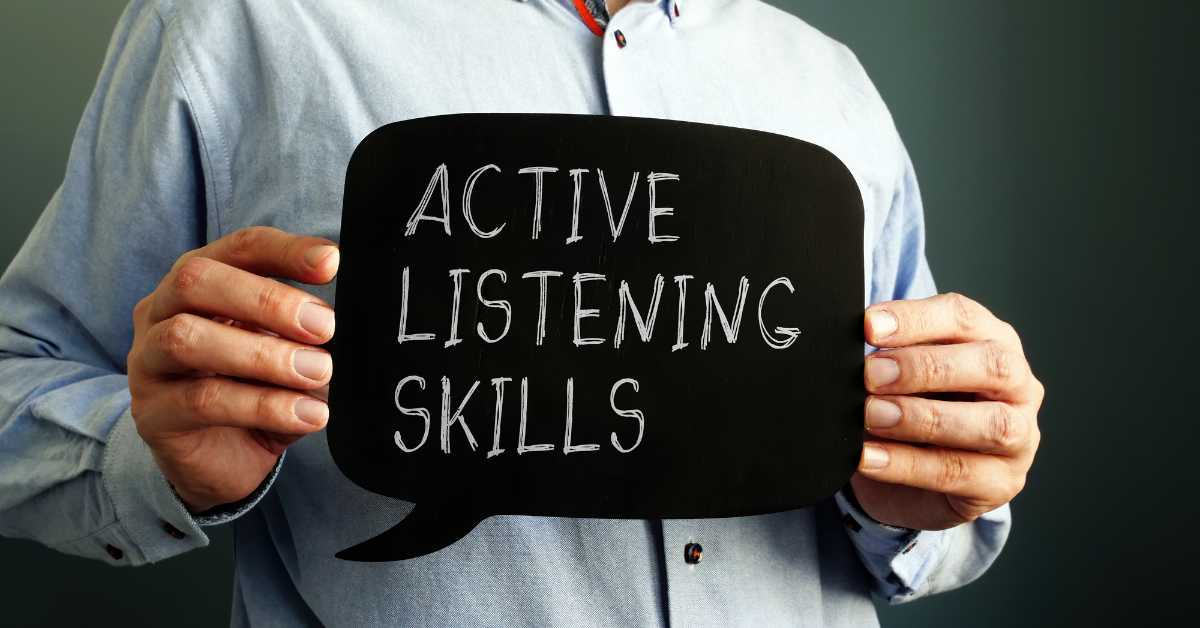This article aims to provide guidance on How To Respond To You Can’t Handle Me. In order to understand the meaning behind this statement, it is important to assess one’s own feelings and reactions. Active listening and open communication play a crucial role in navigating such situations
Setting boundaries and expectations is also essential for establishing healthy relationships. Reflecting on personal growth and self-care can help individuals develop resilience when faced with this statement. Seeking support from trusted friends or professionals can offer valuable insights and guidance.
Finding common ground and shared values is key to fostering empathy and understanding. Lastly, choosing battles wisely ensures that energy is directed towards productive outcomes.
By following these strategies, individuals can effectively respond to the statement ‘you can’t handle me’ while maintaining respectful and constructive interactions with others.
How To Respond To You Can’t Handle Me: Bring it on! I love a challenge. We can navigate anything together. Let’s embrace the adventure and see how well we complement each other’s strengths and quirks
Understanding the Meaning Behind the Statement

The phrase ‘you can’t handle me’ is a declaration that implies the speaker’s complexity and intensity may be too overwhelming for others to manage. It conveys a sense of self-assurance, suggesting that the speaker possesses qualities or characteristics that are beyond the capabilities of those around them.
This statement often arises in situations where individuals feel misunderstood or underappreciated by others. The underlying meaning behind this expression suggests that the speaker may require a high level of understanding, patience, and emotional intelligence from those who interact with them.
By asserting their unique nature, individuals using this phrase seek validation for their distinctiveness and emphasize the need for others to adapt to their requirements rather than expecting conformity.
Understanding and responding empathetically to such statements can foster better relationships by acknowledging and appreciating individuals’ perspectives while striving toward mutual understanding and growth.
Assessing Your Own Feelings and Reactions
Assessing one’s own feelings and reactions is crucial in order to navigate interpersonal conflicts effectively. When faced with the statement ‘you can’t handle me,’ it is important to objectively evaluate our emotional responses.
This entails recognizing any feelings of defensiveness or insecurity that may arise. By acknowledging these emotions, we can better understand their origins and address them constructively.
It is also essential to consider the context in which the statement was made, as well as the intention behind it. Taking a step back and reframing the situation can help us approach it with empathy and openness, rather than reacting defensively.
Lastly, self-reflection enables us to identify areas for personal growth and development, fostering healthier communication and relationships in the long run.
Active Listening and Open Communication

Active listening and open communication are essential components of effective conflict resolution, as they facilitate understanding and promote constructive dialogue.
Active listening involves fully focusing on the speaker, paying attention to both verbal and non-verbal cues, and refraining from interrupting or judging.
This allows individuals to truly understand the other person’s perspective and feelings, fostering empathy and building trust.
Open communication entails creating a safe space where all parties feel comfortable expressing their thoughts and emotions without fear of judgment or retaliation. It involves using clear and respectful language, active engagement in the conversation, and seeking clarification when needed.
By practicing active listening and open communication, conflicts can be resolved more effectively, relationships can be strengthened, and a sense of mutual understanding can be achieved.
Setting Boundaries and Expectations
Establishing clear boundaries and setting realistic expectations are fundamental aspects of effective conflict resolution, as they provide structure and guidance for all parties involved, fostering a sense of security and reducing the likelihood of misunderstandings or unmet needs.
By defining boundaries, individuals can express their limits and communicate their needs in a respectful manner. This helps to create a safe space for open communication to take place, allowing both parties to share their perspectives without fear of judgment or rejection.
Furthermore, setting realistic expectations ensures that each individual understands what is expected of them and what they can expect from others. This promotes accountability and prevents unrealistic demands or assumptions from causing unnecessary conflict.
Ultimately, by establishing clear boundaries and setting realistic expectations, conflicts can be resolved in a constructive manner that serves the best interests of all parties involved.
Reflecting on Personal Growth and Self-Care

Reflecting on personal growth and engaging in self-care practices are crucial components of maintaining one’s well-being and fostering a balanced approach to conflict resolution.
By taking the time to reflect on our own personal growth, we can gain a deeper understanding of our strengths, weaknesses, and areas for improvement.
This introspection allows us to approach conflicts with humility and self-awareness, promoting healthier communication and more effective resolutions.
Self-care practices further contribute to our ability to navigate conflicts constructively. Engaging in activities that promote physical, mental, and emotional well-being replenishes our energy reserves, enabling us to handle challenging situations with greater resilience.
Additionally, practicing self-compassion reminds us of the importance of prioritizing our own needs so that we can better serve others.
Ultimately, reflecting on personal growth and embracing self-care practices not only benefit ourselves but also for those around us. By nurturing our well-being, we enhance our capacity to engage in conflict resolution from a place of empathy and understanding.
Seeking Support from Trusted Friends or Professionals
Seeking support from trusted friends or professionals can provide valuable insights and guidance in navigating conflicts, offering an external perspective that can help broaden our understanding of the situation and potential solutions.
When faced with the challenge of responding to someone who claims ‘you can’t handle me,’ it is important to seek assistance from those we trust. Trusted friends or professionals possess the objectivity and expertise necessary to offer constructive advice.
They can assist in analyzing the situation, identifying any underlying issues, and suggesting effective strategies for communication and conflict resolution.
By seeking support from individuals who have experience in handling difficult situations, we gain access to a wealth of knowledge that can empower us to respond thoughtfully and effectively.
Their input helps us consider alternative perspectives, fostering personal growth while promoting healthy relationships built on empathy, understanding, and mutual respect.
Finding Common Ground and Shared Values

Identifying common ground and shared values fosters a sense of connection and understanding, serving as a foundation for effective communication and conflict resolution.
When faced with the challenge of responding to someone who claims that ‘you can’t handle me,’ finding common ground can help bridge the gap between individuals.
By seeking areas of agreement or shared experiences, it becomes possible to establish a basis for empathetic communication. This process involves actively listening, acknowledging the other person’s perspective, and finding points of agreement upon which to build further discussion.
Additionally, recognizing shared values can contribute to mutual respect and cooperation. By emphasizing values such as empathy, kindness, and fairness, both parties may discover that they have more in common than initially assumed.
In doing so, they create an environment conducive to resolving conflicts effectively while maintaining a focus on service-oriented outcomes.
Building Empathy and Understanding
Establishing empathy and understanding is crucial for fostering meaningful connections and promoting effective communication, as it allows individuals to gain insight into each other’s perspectives and experiences.
By actively listening and seeking to understand, we can create an environment that encourages open dialogue and mutual respect.
Empathy involves putting ourselves in someone else’s shoes, acknowledging their emotions, and validating their experiences without judgment. This process requires active engagement with others’ thoughts and feelings while setting aside personal biases or preconceived notions.
Building empathy also involves recognizing our own limitations and being willing to learn from others. By developing a genuine curiosity about different perspectives, we can cultivate a deeper understanding of diverse viewpoints, leading to enhanced relationships built on trust, compassion, and shared values.
Ultimately, building empathy allows us to bridge gaps in communication by creating connections that are grounded in respect for one another’s unique qualities and experiences.
Choosing Your Battles Wisely

Transitioning from the previous subtopic of Building Empathy and Understanding, it is essential to consider the importance of Choosing Your Battles Wisely when responding to statements like ‘You can’t handle me.’
This concept emphasizes the significance of focusing on conflicts that truly warrant attention while letting go of trivial matters.
By adopting this approach, individuals can maintain a balanced and harmonious environment conducive to serving others’ needs.
It requires discernment to differentiate between situations that necessitate active involvement and those where it is more beneficial to exercise restraint. Effectively choosing one’s battles encourages personal growth, enhances relationships, and fosters a supportive atmosphere for mutual understanding.
Additionally, by prioritizing constructive discussions over unnecessary confrontation, individuals can channel their energy toward resolving conflicts in a productive manner, ultimately promoting empathy and unity among all parties involved.
FAQs About How To Respond To You Can’t Handle Me:
Q:1 What are some common misconceptions about the phrase “you can’t handle me”?
Common misconceptions about the phrase “you can’t handle me” include its implication of superiority or invincibility. However, this phrase may also reflect a lack of self-awareness or an attempt to avoid personal growth and accountability.
Q:2 How can I effectively communicate my boundaries and expectations to someone who says “You can’t handle me”?
To effectively communicate boundaries and expectations to someone who claims “you can’t handle me,” it is important to maintain a calm and assertive tone. Clearly express your needs, desires, and limits while actively listening to the other person’s perspective.
Q:3 Are there any specific strategies or techniques for active listening and open communication that are particularly useful when responding to this statement?
Strategies and techniques for active listening and open communication can be useful when responding to statements such as “you can’t handle me.” These approaches foster understanding, empathy, and effective dialogue, promoting mutual respect and resolving conflicts.
Q:4 How can I determine if the person saying “you can’t handle me” is genuinely seeking understanding and growth, or if they are just using it as an excuse for their behavior?
Determining whether a person uttering “you can’t handle me” seeks understanding or uses it as an excuse requires careful observation of their behavior and communication patterns. Look for consistent efforts towards self-improvement and willingness to engage in open dialogue.
Q:5 What are some potential signs that seeking support from trusted friends or professionals may be necessary when dealing with someone who frequently uses the phrase “you can’t handle me”?
Potential signs that seeking support from trusted friends or professionals may be necessary when dealing with someone who frequently uses the phrase “you can’t handle me” include persistent negative emotions, difficulty in setting boundaries, and repeated patterns of toxic behavior.
Conclusion:
In conclusion, responding to the statement ‘you can’t handle me’ requires understanding, self-reflection, open communication, setting boundaries, and seeking support.
By actively listening and finding common ground, empathy and understanding can be built. It is important to choose battles wisely and prioritize personal growth and self-care.
Seeking help from trusted friends or professionals can provide additional guidance. Overall, responding to this statement involves a thoughtful approach that promotes healthy relationships and fosters personal development.
We hope you will be well aware of How To Respond To You Can’t Handle Me, after reading this comprehensive article. If you have any questions, feel free to comment below!
